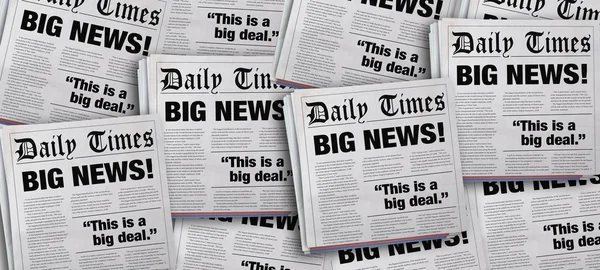
I know several people who are trying to avoid the news these days for various reasons. I myself pay less attention to current events than I should, partly from laziness, but also because so much of the “news” coverage focuses on the wrong things. Despite how easy it is to get information, one has to work quite hard these days to get to the actual news. Staying informed, it turns out, is vastly different from staying aware.
The news coverage of the tariffs that were recently announced and then paused provides an excellent example. While journalists talked quite a bit about the stock market’s reactions to the changes, they also focused on the penguins of Heard and McDonald Islands. Many news outlets pointed out the absurdity of placing tariffs on islands inhabited only by animals. I understand that such a blunder is amusing, but in this case amusing and important stand miles apart. Many of the same journalists who focused on the penguins didn’t see their own blunder. Tariffs on every country in the world were sure to have a massive impact on the U.S. economy, and by extension on every person living in the U.S. Somehow, those journalists overlooked that, and thus didn’t report on the meat of the situation. I saw no stories about how U.S. trade with South America, for instance, would change. What options did the European Union have in their response? I don’t know, because that didn’t come up in the coverage I saw. (Again, I’m sure someone talked about those issues, but like many – probably most – people, I was too lazy to dig through the sensational headlines to find the proper, in-depth coverage.)
Cory Booker’s marathon speech in the Senate was another example. He spent 25 hours critiquing Donald Trump’s policies, mindset, and political philosophy. Very little of the coverage mentioned the content of the speech, though. More reporters were worried about Booker’s bathroom break schedule, his eating schedule before he began speaking, and various other topics that have absolutely no bearing on the future of domestic and international politics or the way the Constitution is operating in the current political world.
Journalism has always had a strain of sensationalism, trying to grab attention and shock readers, but the trend has grown to the point that it has largely moved the fourth estate from information and education to entertainment. I noticed many years ago that more headlines and stories focused on reactions to events than the events themselves. If a politician or celebrity makes a comment that provokes charges of sexism, racism, or something similar, I have found that it is often difficult to get the full context of what they were talking about. The coverage will give a sentence or two of the comments, and then paragraphs of reaction from various public figures or social media feeds. It’s easy to catch someone phrasing something badly, or to misinterpret a rhetorical question as a serious inquiry, or to mistake an offhand joke for a serious, well-thought-out position. It’s much harder to examine someone’s history of thought to know if your interpretation, and those of the other people reacting to the comment, makes sense. You need to spend time researching what the speaker has said in the past, how they have treated others, etc. Unfortunately, most of us, whether we are journalists or viewers, simply don’t put out that much effort.
by Marti Maltby, Director Peace House Community – A Place to Belong
This article originally appeared in “The Alley,” the newspaper for the Phillips neighborhood of Minneapolis.
